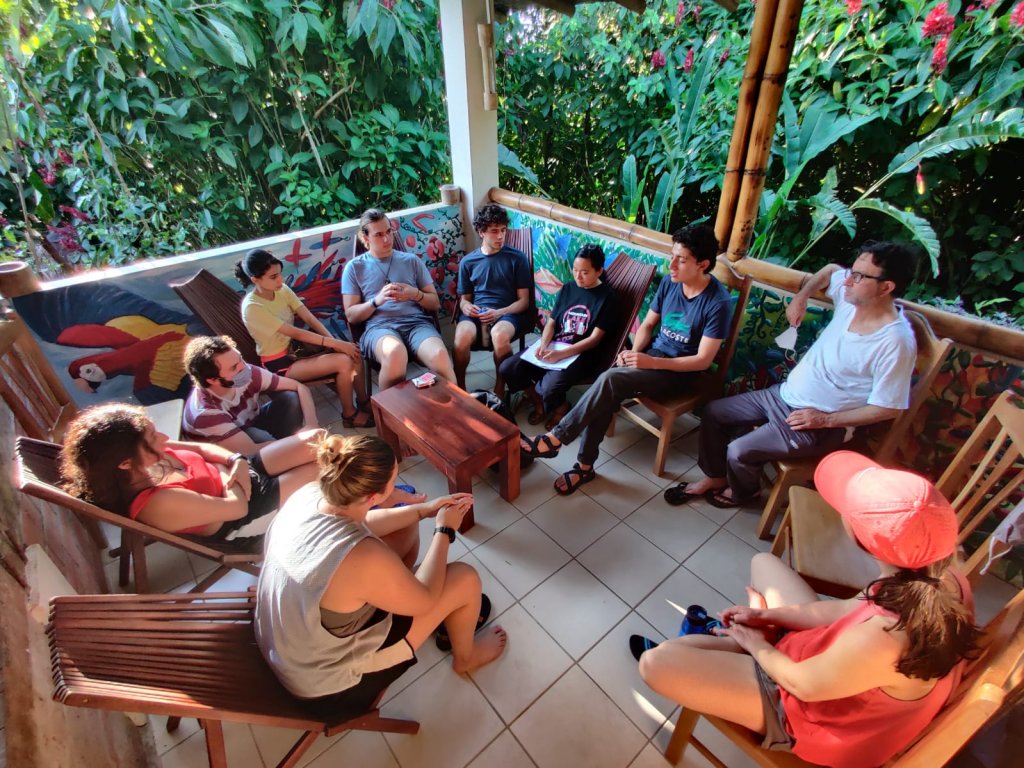What is our story on climate change?

Last week I participated in the Anabaptist Collaboration for Climate Change, a gathering convened by the Center for Sustainable Climate Solutions (CSCS), a five-year-old collaborative enterprise of Eastern Mennonite University (EMU), Goshen College and Mennonite Central Committee (MCC), supported by entrepreneurial Mennonite philanthropists.
This gathering brought together additional Anabaptist partners: Mennonite Church USA and Mennonite Church Canada, Mennonite World Conference, Everence, Mennonite Economic Development Associates, Mennonite Mission Network, MennoMedia, Mennonite Disaster Service, Mennonite Creation Care Network, Mennonite Healthcare Fellowship, the Coalition for Dismantling the Doctrine of Discovery, and Mennonite Men.
Okay, that’s a dizzying list of Mennonite organizations – all of which view climate change as a significant moral issue defining our time in history. I came away inspired, daunted and eager to bring about something new and greater than the sum of these parts as we all seek to address the urgency of the climate crisis.
The leading goal of the gathering was to explore an Anabaptist approach to climate issues. Sounds simple, right?
Not so simple. The gathering left me with a new set of questions:
- Do we have a shared theology, worldview and language on this? Creation care, stewardship, eco-justice, eco-spirituality, climate justice . . . . What do we really mean by all these terms and are we standing on solid ground for collective action?
- How can we leverage our related efforts to address systemic racism, economic inequalities and health disparities — all of which intersect with climate change?
- What are our intergenerational responsibilities around this issue? We were a gathering of organizational representatives mostly in their mid-life and beyond. How do we invite the leadership and perspective of young people? Goodness knows, we need them.
- What can we do together that we cannot do by ourselves? Each of the organizations represented has numerous ongoing actions and programs arising out of their unique missions. But is there an opportunity for us to come together in a new and powerful way? What new structures are needed, if any?
Peter Dula, professor of religion and culture at EMU, summarized four decades of Anabaptist writings about environmental ethics and suggested that we are transitioning from a focus on stewardship toward one of eco-spirituality and “watershed discipleship.” If that intrigues you, as it did me, you can read his full paper in the Mennonite Quarterly Review.
Thankfully, we have largely left behind “dominion theology” with regard to the earth, but we’re still working out our new understandings. Dula quotes cultural historian Thomas Berry:
“It’s all a question of story. We are in trouble now because we do not have a good story. We are in between stories. The Old Story — the account of how the world came to be and how we fit into it — is not functioning properly, and we have not learned the New Story.”
It seems to me that one of the truly useful things the church – including Goshen College – can do is lead us into a new story. After returning from the gathering I had a helpful conversation with my own pastor at College Mennonite Church, Phil Waite. Phil responded, “We need to think differently about what it means to be a human being. And this is the work of the church.”
I am committed to learn more about this — especially with youth and young adults. What do you commit to do?
Rebecca Stoltzfus




